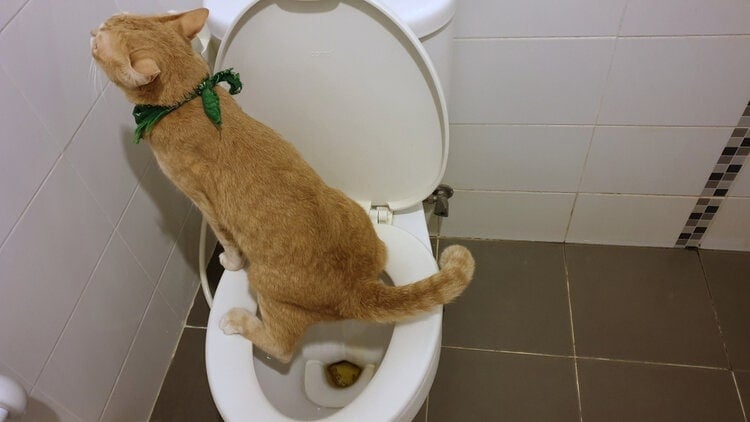An Risks of Flushing Animal Waste Down the Toilet
An Risks of Flushing Animal Waste Down the Toilet
Blog Article
They are making a few good observations on Don't Flush Your Pets Poo Down The Loo, Vet Warns in general in this article just below.

When it involves getting rid of waste, particularly animal waste, many individuals often consider the hassle-free alternative of flushing it down the toilet. Nevertheless, this seemingly simple solution can have significant repercussions for the environment and public health. In this article, we'll explore why flushing pet waste down the bathroom is a negative concept and provide alternative approaches for correct disposal.
Intro
Proper garbage disposal is crucial for maintaining ecological sustainability and public health. While it might appear safe to purge animal waste down the toilet, it can lead to numerous issues, both for the atmosphere and human well-being.
Risks of flushing animal waste
Ecological impact
Purging animal waste presents damaging microorganisms and pathogens right into rivers, which can negatively influence aquatic environments. These microorganisms can contaminate water resources and harm marine life, interrupting delicate communities.
Public health worries
Animal waste contains dangerous bacteria such as E. coli and Salmonella, which can present significant health risks to human beings. Flushing pet waste down the toilet can infect water products, leading to the spread of illness and infections.
Alternatives to flushing
As opposed to purging pet waste down the bathroom, there are numerous alternative disposal approaches that are a lot more eco-friendly and sanitary.
Composting
Composting animal waste is an environmentally friendly way to dispose of it. By composting, organic matter is broken down into nutrient-rich dirt, which can be made use of to fertilize gardens and plants.
Land fill disposal
Throwing away animal waste in a landfill is another option. While not as environmentally friendly as composting, it is a more secure alternative to flushing, as it protects against the contamination of water sources.
Family pet waste disposal systems
There are customized pet dog waste disposal systems available that securely and hygienically deal with pet waste. These systems typically make use of enzymes to break down waste and eliminate odors.
Steps to proper pet garbage disposal
To make certain proper disposal of animal waste, comply with these steps:
Scooping and landing waste
On a regular basis scoop and bag pet waste making use of biodegradable bags. This prevents waste from contaminating the setting.
Using designated waste containers
Dispose of bagged pet waste in marked waste bins, such as garden compost containers or landfill bins. Prevent flushing it down the bathroom in all prices.
Cleaning litter boxes and animal areas frequently
Frequently clean litter boxes and pet locations to stop the build-up of waste and bacteria. Usage pet-safe cleansing products to preserve hygiene.
Benefits of correct disposal methods
Taking on appropriate disposal methods for pet waste provides a number of benefits:
Decreased environmental pollution
Proper disposal methods reduce the danger of environmental pollution, shielding waterways and communities from contamination
Lessened risk of water contamination.
By avoiding flushing pet waste down the bathroom, the danger of water contamination is dramatically decreased, guarding public health.
Improved cleanliness and hygiene
Appropriate disposal techniques promote much better cleanliness and health, developing a much safer atmosphere for both people and pets.
Final thought
To conclude, purging pet waste down the toilet is harmful to the setting and public health. By embracing different disposal approaches and adhering to appropriate waste management practices, we can decrease the negative influence of pet waste and contribute to a cleaner, healthier world.
What To Do With Dog Poo – The Do's And Don'ts Of Disposing Of Faeces
Dog poo bins
Some councils provide dedicated dog waste bins in popular dog-walking areas that can take dog poo that has been bagged but you can legally dispose of dog waste in any public litter bin, as long as it is securely bagged. This also applies to your wheelie bin at home.
Do not flush
Water companies do not recommend flushing dog faeces down the toilet because certain parasites can survive the water processing treatment and are potentially harmful to humans. You should also never consider flushing dog poo that has been bagged down the toilet as the bags will not break down and instead create severe blockages in the sewage system.
In the woods
The Forestry Commission promotes a ‘stick and flick’ method for dealing with waste in the woods. This means finding a stick and using it to flick any poo from off the path so that it is out of the way of other walkers. You could also bury it as long as it is not in an area where there might be livestock.
Livestock
Parasites found in dog poo can be transmitted to livestock if they inadvertently eat infected faeces that has been left on grazing land. This could result in the death of sheep or abortion in cattle so you should always make sure you pick up your dog’s waste in fields where livestock could be present.

Frequently clean litter boxes and pet locations to stop the build-up of waste and bacteria. Usage pet-safe cleansing products to preserve hygiene.
Benefits of correct disposal methods
Taking on appropriate disposal methods for pet waste provides a number of benefits:
Decreased environmental pollution
Proper disposal methods reduce the danger of environmental pollution, shielding waterways and communities from contamination
Lessened risk of water contamination.
By avoiding flushing pet waste down the bathroom, the danger of water contamination is dramatically decreased, guarding public health.
Improved cleanliness and hygiene
Appropriate disposal techniques promote much better cleanliness and health, developing a much safer atmosphere for both people and pets.
Final thought
To conclude, purging pet waste down the toilet is harmful to the setting and public health. By embracing different disposal approaches and adhering to appropriate waste management practices, we can decrease the negative influence of pet waste and contribute to a cleaner, healthier world.
What To Do With Dog Poo – The Do's And Don'ts Of Disposing Of Faeces
Dog poo bins
Some councils provide dedicated dog waste bins in popular dog-walking areas that can take dog poo that has been bagged but you can legally dispose of dog waste in any public litter bin, as long as it is securely bagged. This also applies to your wheelie bin at home.
Do not flush
Water companies do not recommend flushing dog faeces down the toilet because certain parasites can survive the water processing treatment and are potentially harmful to humans. You should also never consider flushing dog poo that has been bagged down the toilet as the bags will not break down and instead create severe blockages in the sewage system.
In the woods
The Forestry Commission promotes a ‘stick and flick’ method for dealing with waste in the woods. This means finding a stick and using it to flick any poo from off the path so that it is out of the way of other walkers. You could also bury it as long as it is not in an area where there might be livestock.
Livestock
Parasites found in dog poo can be transmitted to livestock if they inadvertently eat infected faeces that has been left on grazing land. This could result in the death of sheep or abortion in cattle so you should always make sure you pick up your dog’s waste in fields where livestock could be present.

I discovered that review on when doing a lookup on the search engines. So long as you appreciated our blog posting plz don't forget to pass it around. We value your readership.
Call Report this page